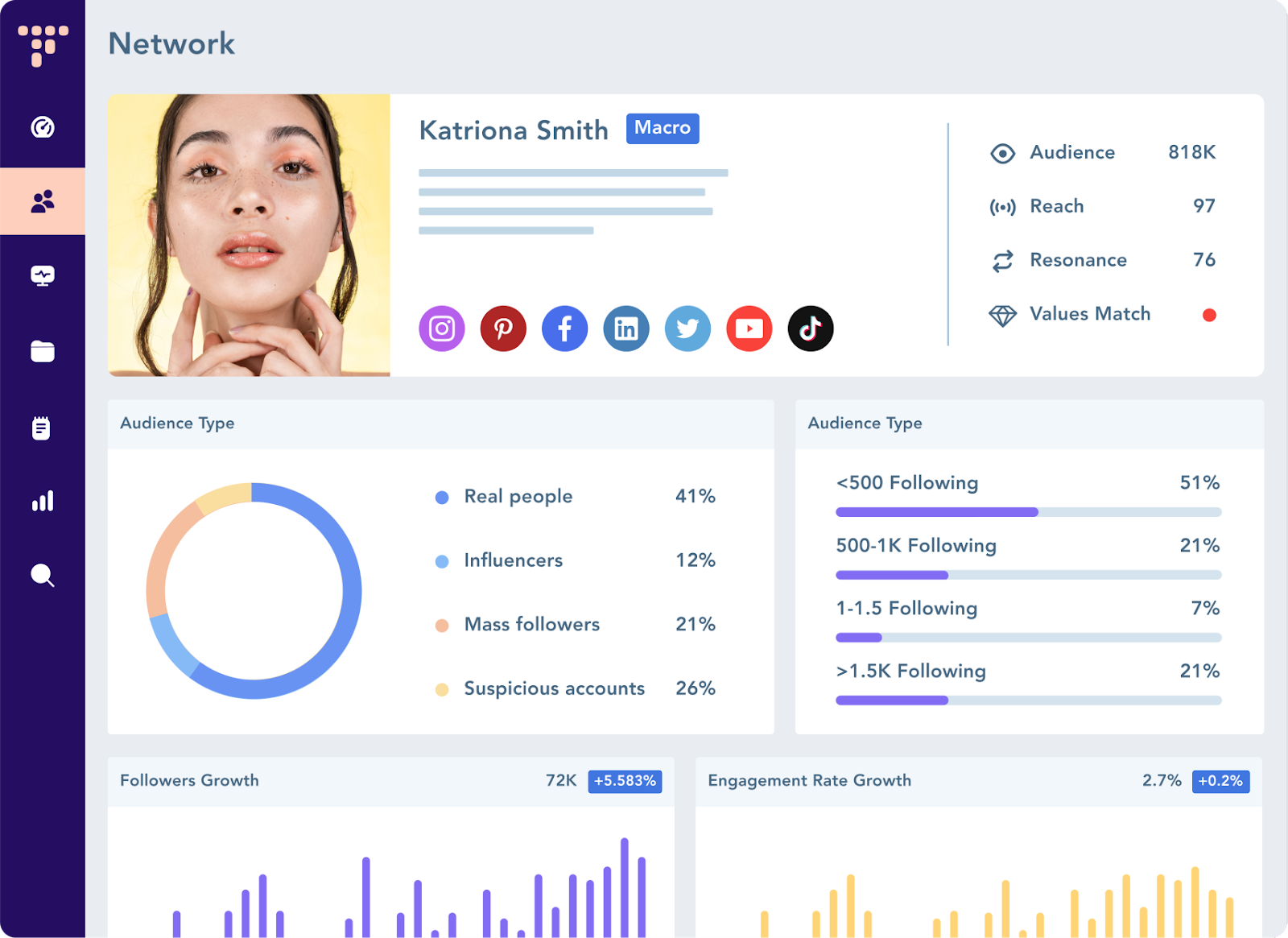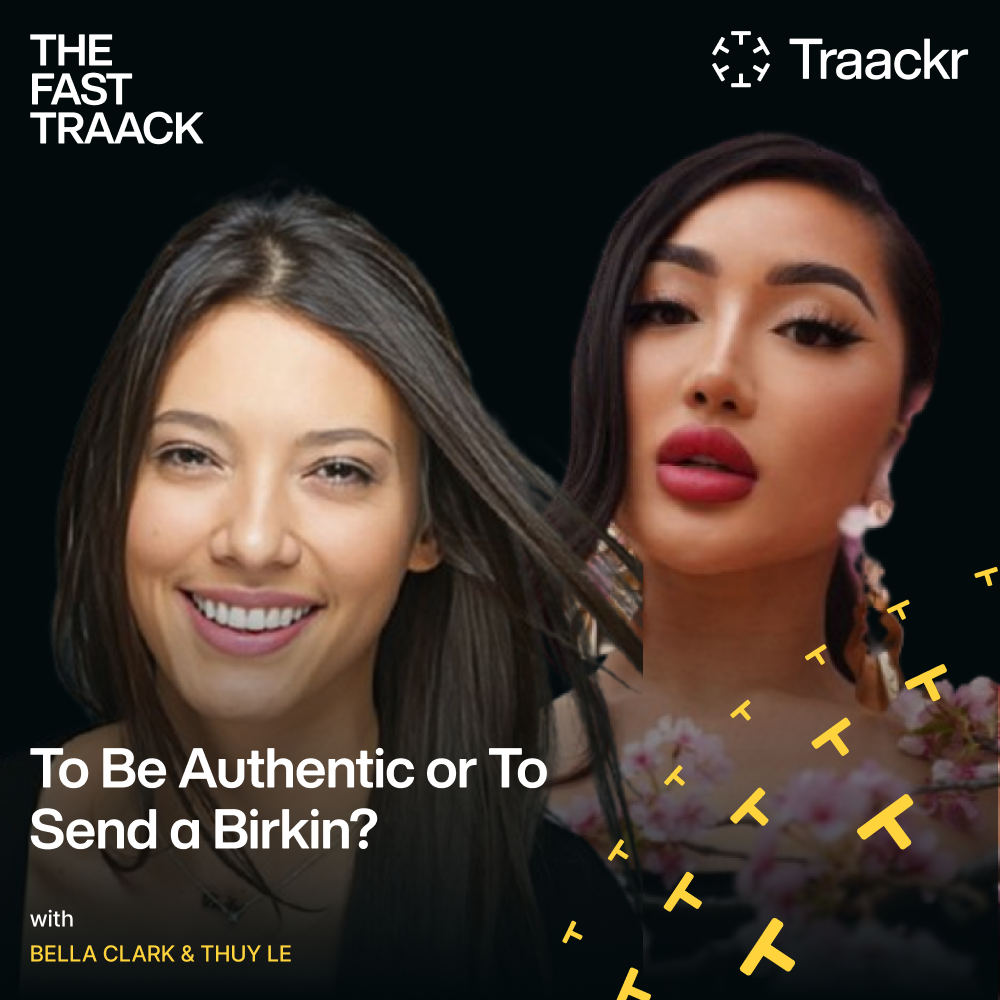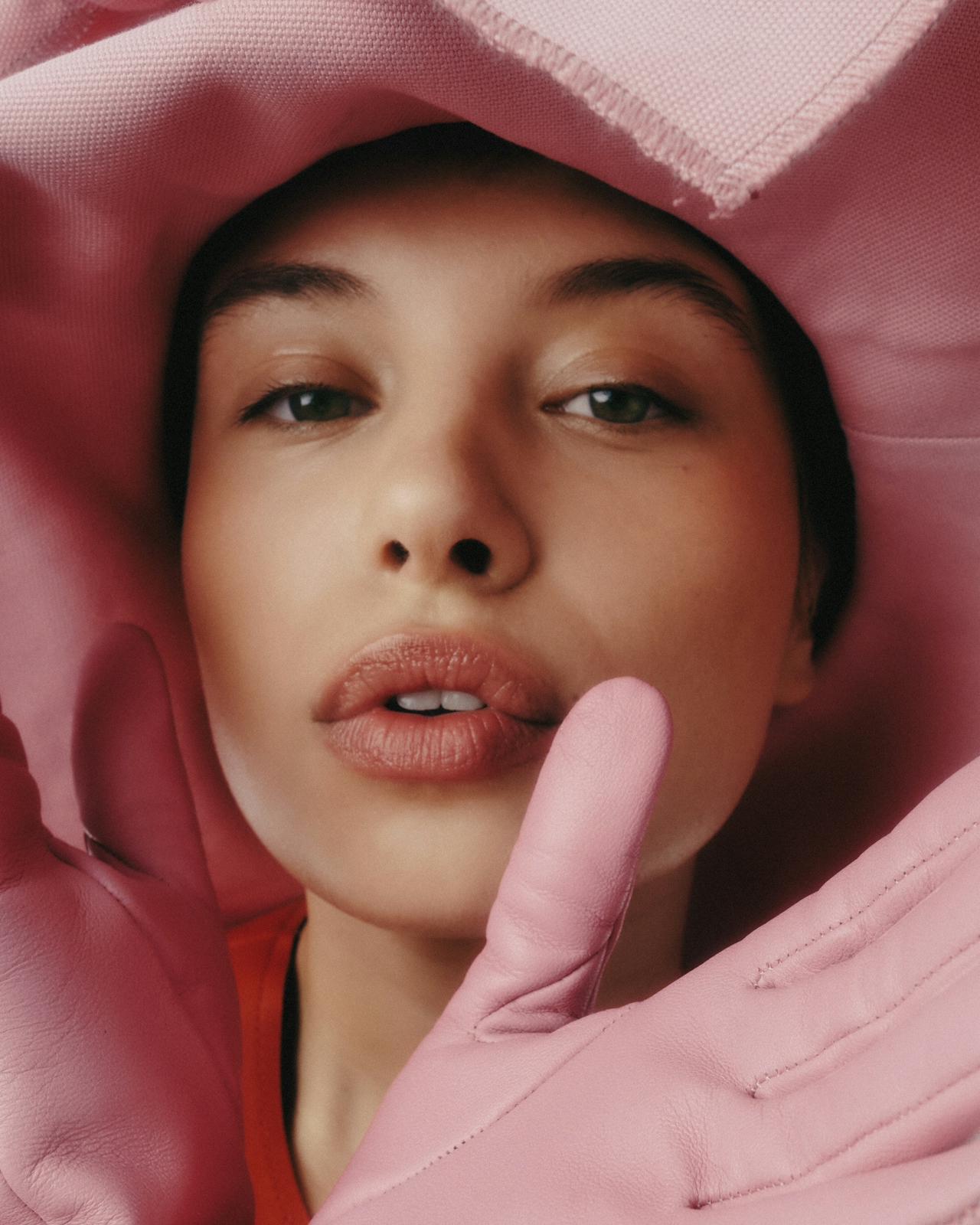Checklist: How to Find Influencers for Your Brand

Find Influencers Who Are Brand Safe
Influencer marketing is rapidly evolving. Before, brands could win by locking in one-off partnerships with VIP influencers. Now, brands need more sophisticated and long-term partnerships to see success.
Of course, building those types of partnerships relies heavily on the ability to find the right influencers. Below we detail how to find and vet influencers who will be great partners and resonate with your audience.
Why should you vet your influencer partners?
Consumers trust and rely on influencers for product recommendations now more than ever. According to Traackr’s recent Influencer Marketing Impact Report, 70% of consumers are more likely to buy a product from a brand if they work with an influencer they know and trust. Choosing influencer partners who can be a seamless extension of your brand will make your brand more appealing and trustworthy amongst their audience.
When finding and vetting influencers, Giovanna Rienzi, Marketing Director at Lula Skincare, has a basic checklist that ensures that her influencer partners are reaching the brand’s target audience. She makes sure to review:
- Audience demographics like age, gender, location, interests, etc.
- Brand affinity like checking to see if the influencer mentioned your brand before
- Performance metrics like engagement rates and video view rates
- Audience insights like seeing how many influencer’s followers are spam or bot accounts
Tip: Audience location is especially important when finding partners for seeding campaigns! You don’t want to send products to influencers whose audience is in a place that your product can’t ship to. Audience age is also super important if you are in an industry that has age restrictions, like spirits!
If you've been in influencer marketing for a minute, the notion of vetting an influencer's audience and performance is probably not new to you. Hopefully, by now, you've even worked out a smooth process for this. Once you've confirmed an influencer has the power to reach your desired audience, how do you know if they are the right fit for your brand? The answer: conduct a brand safety check.
How to Conduct a Brand Safety Check
1. Build a list of brand safety keywords you want to avoid
Start by defining which topics are sensitive or potentially damaging to your brand. Once you have defined your topics, build a list of keywords that are associated with those topics so you can run an exhaustive audit. For example, a brand that is focused on diversity and inclusion may want to avoid influencers who have mentioned terms that are exclusionary or worked with brands that have been flagged as discriminatory. Or, a sustainable fashion brand might want to avoid working with influencers who mention terms associated with greenwashing or who often partner with fast fashion brands.
2. Compare keywords against a potential partner’s content
Now that you’ve developed your list of keywords, it’s important to look through each potential partner’s content and evaluate how they engage with these topics.
Technology, like Traackr’s brand safety features, can support this process by flagging past content that mentions anything from your keyword list on all social channels. The platform will surface the posts that are potentially concerning so you can review the specific tone and sentiment of the material. If you don’t have a tool like Traackr, you can always do your research and look through an influencer’s content on each social platform. Although tedious, it is worth it!
Tip: When browsing through an influencer’s content, note if they are following FTC guidelines for sponsored content. Influencers who comply with the FTC guidelines show that they are transparent with their audience and it will save you a lot of legal trouble down the road.
3. Find fake influencers
…or otherwise known as a “fake follower analysis.” When you partner with a creator, you’re hoping to connect and make an impact on their audience. But not all influencers have audiences of real, engaged people. Some may have followers that are bots, spam accounts, or people who follow so many accounts that they’ll never see that influencer’s content.
Tools, like Traackr, allows you to look at a creator’s:
- Audience Credibility: This shows the percentage of a creator’s audience that is authentic, so you can determine if the influencer’s audience is full of real accounts or masquerading as ones.
- Audience Type: A breakdown of who is following the creator like mass followers (people who follow more than 1.5K accounts) or suspicious accounts (bots, stolen/hacked accounts, ect.). More suspicious accounts than regular accounts is a clear giveaway that you might not be reaching your target audience.
- Audience Reachability: The percentage of an influencer's followers that follow a certain number of accounts, so you can see if your organic or sponsored post would reach their audience. If you partner with an influencer whose followers follow 1.5K+ accounts, it’s unlikely that they will ever see your post.

"As a start-up, we’re always looking for ways to cut through the noise and get our products in front of the right audience. Traackr’s audience credibility tool has been an invaluable resource in doing just that. Not only can we determine if an influencer’s audience is authentic, but also if their target market matches ours." - Giovanna Rienzi, Marketing Director at Lula Skincare
If you don’t have an influencer marketing software, here are a few things you can check by hand:
- Do the accounts following your potential partner look like real people?
- Do followers generally fall into the demographics you want to reach?
- Are the influencer’s posts receiving thoughtful comments that indicate genuine engagement? Or is it full of bots and spam?
What’s next?
Now that you know how to find influencers and vet them, it’s time to reach out to them! Here’s a great article on how to convince influencers to work with your brand.

Listen to Bella Clark, Head of Influencer and Partnerships at Lipton, and content creator, Thuy Le, share why authenticity outshines extravagance when it comes to creator partnerships.
Listen nowSee which brands are leading the way in influencer marketing with our real-time performance leaderboard.
View brand leaderboard
What Top & Rising Brands Are Teaching Us About Influencer Marketing in 2026
.jpg)
Traackr Welcomes Ramzi Saba as Chief Technology Officer
_Nick_Fancher_Photos_ID6169.jpg)
Unlocking Creator Value for Global Brands in the Age of AI
Level up your creator marketing expertise
Get industry insights and updates straight to your inbox.
